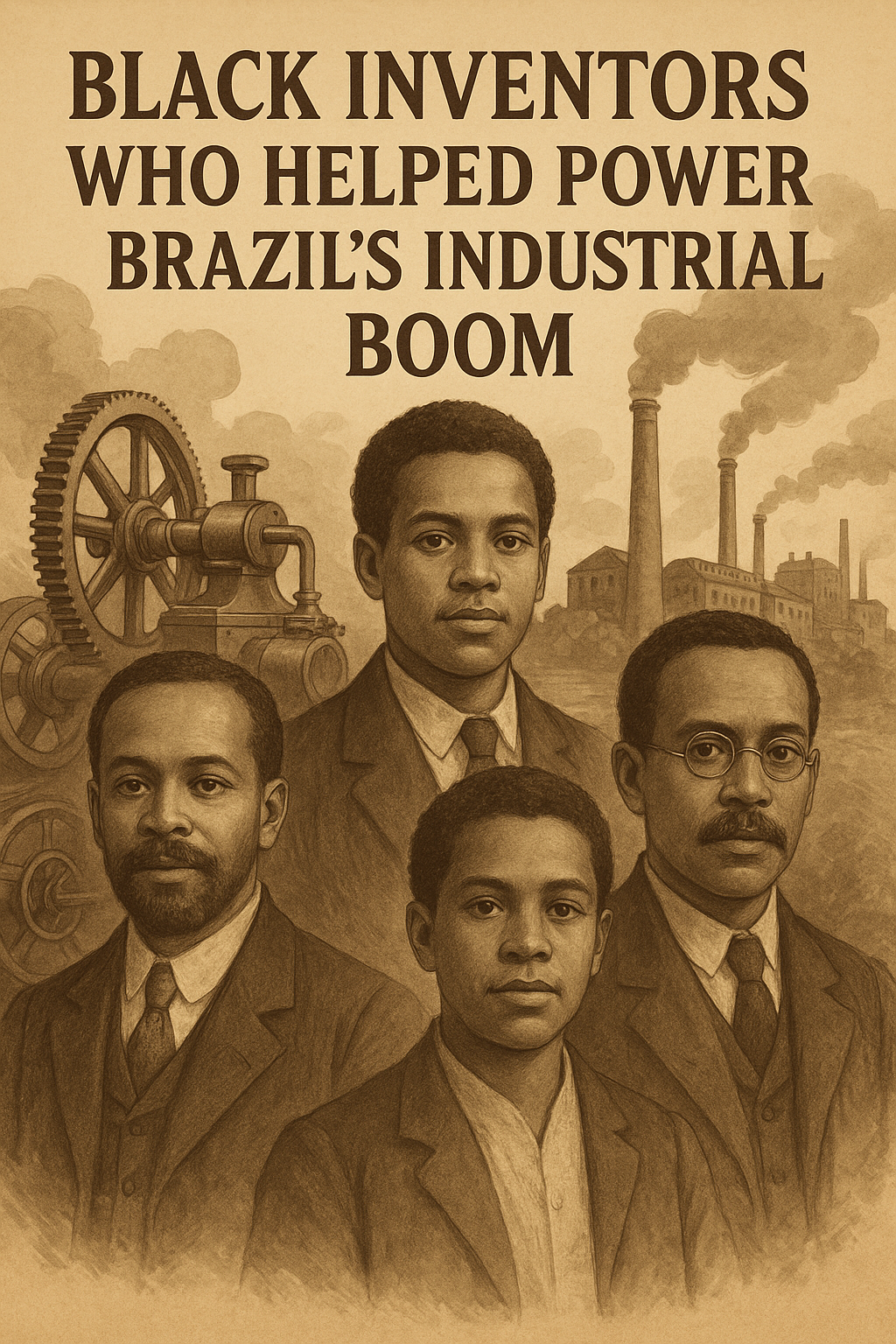Brazil’s industrial rise in the late 19th and early 20th centuries was not solely the product of European influence or elite innovation. Beneath the surface of smokestacks and railroads were the brilliant minds of Afro-Brazilian inventors whose names rarely appear in textbooks—but whose contributions were critical to national progress.
A Legacy Forged in Resistance and Innovation
Following the abolition of slavery in 1888, Brazil entered a phase of intense industrialization. Newly freed Black Brazilians, often excluded from capital and formal education, nevertheless played pivotal roles as inventors, mechanics, and engineers. Many innovated out of necessity—transforming trade skills learned under enslavement into mechanical genius that birthed patented inventions.
One such figure was André Rebouças, a civil engineer and inventor whose work in hydraulic engineering helped transform Brazil’s infrastructure. Though more known for his political activism, Rebouças also designed steam engines and contributed to modernization efforts in Rio de Janeiro.
From the Workshops to the Patent Office
In the early 20th century, inventors like Henrique Dias de Carvalho and Francisco Antônio de Almeida quietly secured patents for industrial tools, textile processes, and sugar cane machinery. These technologies improved efficiency in mills and factories—directly fueling Brazil’s export economy.
Many Black Brazilian inventors worked within artisan and industrial collectives, where knowledge-sharing occurred in the absence of formal institutions. Their inventions emerged from community ingenuity, often blending African traditions with Western mechanics.
Why Their Contributions Matter Today
The stories of these inventors challenge the myth that post-abolition Brazil was a passive recipient of industrial modernity. Black Brazilians were active creators of it. Their erasure from the historical record is not an accident—it reflects racialized systems of memory and merit.
By spotlighting these innovators, KnowThyHistory.com reclaims a crucial chapter in Brazil’s economic and technological evolution. These inventors weren’t just contributors—they were architects of Brazil’s modern foundation.
